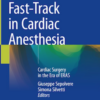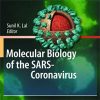Trends in Empiric Broad-Spectrum Antibiotic Use for Suspected Community-Onset Sepsis in US Hospitals
jamanetwork.comEmpiric treatment for suspected community-onset sepsis accounts for about half of broad-spectrum antibiotic use in US hospitals even though resistant organisms are isolated in only 7% of patients with community-onset sepsis and less than 10% of patients treated with broad-spectrum agents.
Broad-spectrum antibiotic use for suspected sepsis is increasing while the percentage of cases with proven resistant infections is decreasing, translating into an increasing number of broad-spectrum courses that are likely unnecessary in retrospect.
These findings help elucidate the contribution of suspected sepsis to antibiotic prescribing in US hospitals and inform ongoing deliberations on finding the balance between assuring early, appropriate therapy for patients with severe infections vs limiting overuse for the majority of patients who do not have antibiotic-resistant infections.

















